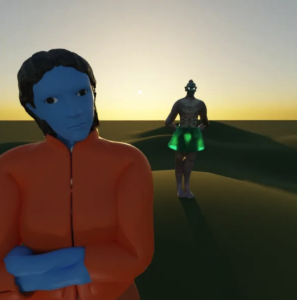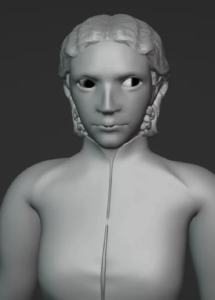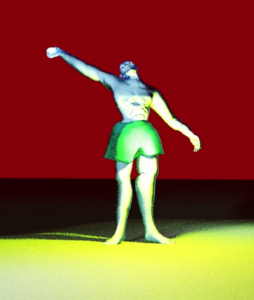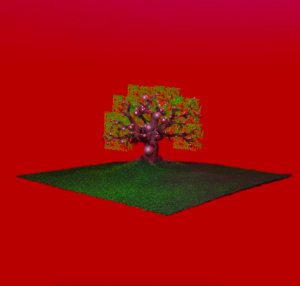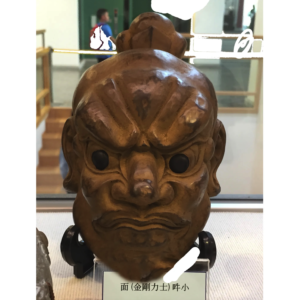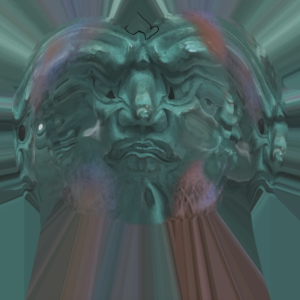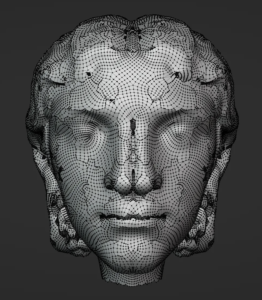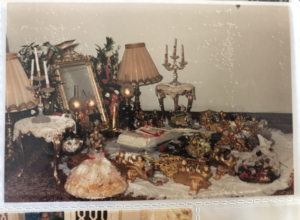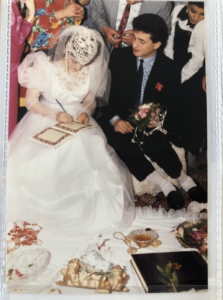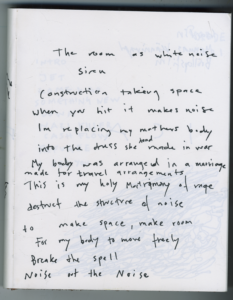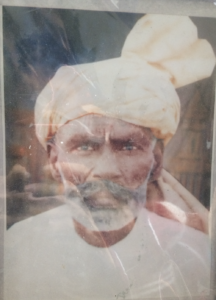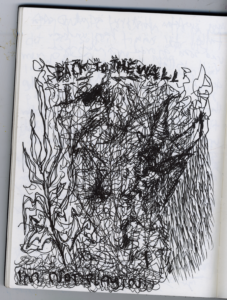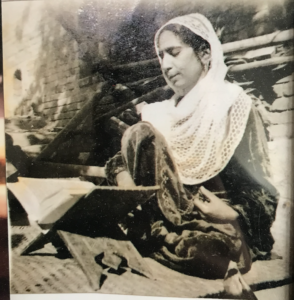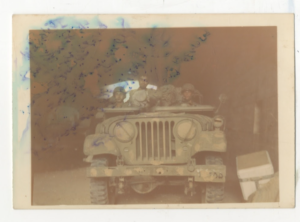SILENCE
During our Zoom interview, Valentin dials in from Villa Medici in Rome, where a peacock passes and lingers behind him. Asli is in apocalyptic NY, where the sky turned orange, and Perwana is based in sunny LA, where she encountered a small animal in her apartment.
Asli Baykal:
In my notes, I wrote “revolutionary love or love of revolution”. It’s from your synopsis.
Valentin Noujaïm:
It’s actually inspired by Houria Bouteldja, and she talks about the love of revolution of the revolution of love, which I always found very beautiful. It’s a formula that I always use. I would say.
Perwana Nazif:
I guess maybe we can start off with the title of the film, The Blue Star. You also don’t have to answer any of the questions I say because I do understand if you want to keep certain things maybe more opaque, not so transparent. I was looking up what a blue star is, the blue star sort of eats its own interior. So, it’s both sort of expanding and contracting.
Valentin:
And contracting.
Perwana:
And I love the sort of inhabiting of negative space here. There’s a lot of Black feminist scholarship on this, which I think is distinct from what you’re doing, but it’s in conversation with it. So I’ve been reading, and I’ve been writing a lot about, actually, Evelyn Hammonds’s work. She’s a Black feminist science historian, she writes about this reference to a black hole as a physics metaphor for Black female sexualities. I’m just walking you through, and she’s talking about black female sexualities as a perceived void. So, it’s both absent and present and she refigures it as black (w)hole and she writes through the dependency of a normative sex/gender order on this space/non-space. So, it’s this negative space you’re talking about. There’s both a presence and an absence.
And the way that she talks about it is that it’s a way to measure against the visible and what’s affected by the visible. So, this supposed void is invisible, but it affects what is visible, as in white female sexuality. She is writing about how Black female sexuality is seen not just voided but seen as aberrant or not normal or typical. And people like Spillers talk about the radicality of this, of this queering, but it’s also done in a really violent way.
Valentin:
Yeah.
Perwana:
This black hole metaphor in physics is talking about invisibility, talking about contesting evidence, physical material evidence. She’s bringing in psychoanalysis and talking about differences. And of course, Fanon and psychoanalysis come to mind. And I’m just rambling right now, but I was thinking about this void that I think is also present with the blue star that you are addressing, with psychoanalysis too, but also maybe beyond it, as well. And you’re talking about sadness or maybe allegorizing it. But at the same time, the blue star isn’t a metaphor to me. It’s an actual site. It’s like a place, maybe a site of being and maybe a site of being that you don’t actually reach but you’re striving to reach.
Anyways, these are my thoughts on the title, and I was just curious about what you thought, and I’m so not trying to do that thing that people do in Q&As where they talk for 10 minutes about something.
Valentin:
No, I love
Perwana:
[laughs] This is what I was getting from the title.
Valentin:
At first, I chose the title more for poetic reasons than for anything else because I thought that blue stars were not real. I didn’t know that there were blue stars. I thought there were only red stars like ours, our sun. But then, I suddenly realized that on other satellites and other planets, even in our own solar system, the sky is not necessarily blue. The sky can be red, can be yellow, can be a different color depending on the atmosphere. And I called it The Blue Star at first because blue is a color that is very recurrent in all of my films. And for me, it was kind of this goal to reach because, so in a very basic way, blue sky, watching the sky, definitely this horizon that is unreachable.
Also, the fact that the sky is blue, but if you go closer to the sky, the blueness disappears, and it just becomes dark. So, you never reach the blue sky. Actually, it’s an illusion. So, that was more my first thought of it. But then, when I started to research that blue stars actually exist, which I felt very stupid when I realized this, I also found out this negative and positive conception, one that is appearing and one that is disappearing, the fact that it’s eating from itself. And I loved it. Actually, there’s a lot missing in the film. Actually, I think it’s one of my films that has the most dialogue in a way. It’s the most talkative film that I made. But at the same time, it’s the film that talks a lot about actual voids and silence and even different terms of communication because at the end, we have a shout, we have some whispering, we have different levels of voices. We have a narrator, which is also the only time I use kind of a narrator figure.
So, yeah, the blue came out of this. And there was also this concept of, I don’t know if you know, the concept of Fata Morgana, which is this concept also called shadow Islands. It’s when you’re watching the horizon, especially if you’re looking at the sea, you can almost feel like you see an island or sometimes a ship, and it’s just floating.
Asli:
It’s just like when you look in the distance and you see the ship floating. It’s like an illusion.
Valentin:
Exactly. Exactly. This illusion it’s called Fata Morgana, but it’s also Shadow Island, which I love; Shadow Island, also this name… It’s something that is very recurrent in my work, this idea of the shadow island, something that you don’t see. I recently read about Jacques Derrida in Mal d’Archives, talking about archives and about material archives, and immaterial archives. The material archives are what we see, like pictures, photography, voices, whatever, all the materials we have. But the immaterial archives are more a feeling or something missing. So, it’s again, maybe a bit like this blue star, positive and negative, what you can and can’t see. I feel like The Blue Star is exactly using material archives to actually try to talk about more immaterial archives for my family and from this period of time also in Lebanon.
Asli:
I feel like it’s such an immigrant mindset to have a Shadow Island where you fantasize about reaching a distant location or some utopic land. And also, I feel like many immigrant families lose their archives over generations. Even untrackable sometimes.
Valentin:
When I discovered my grandfather’s archives, I made the film. I’ve never seen all of this footage before because my dad never thought I was going to be interested in it, so it was kept. And then, I realized how lucky I was also to get to have all this material. It’s quite luxurious and privileged to have that amount of material. I realized that we got it just because he was working in the army, and it’s just unlimited films that he got. But I actually don’t even know how the 8mms arrived in France. I’m not even sure if it’s my dad who took it. It was a lot of 8mms back then, with money from production, digitalized. It was maybe five hours, four hours of 8mm, which is really, really-
Perwana:
That’s amazing.
Valentin:
Yeah. And it was a big suitcase. So, I don’t even know how they transported this from Lebanon to France. I should ask. In the blue star, there is also this concept that I really wanted to work with, the destruction aspect. There is a death aspect also to it. Of course, there is this horizon, but it doesn’t work. And maybe it’s a very pessimistic film, but I really wanted to think about this shadow island that we have as immigrants. I mean, especially in France, I see a lot of conversation, a bit like dreaming about what’s behind the Mediterranean Sea. And I really wanted to work on that because I’ve been part of this dream. Sometimes I was like, “Wow. What if my parents stayed, or what if I grew up in Lebanon?
I wanted to reflect on this speech that I had when I was younger. I’m not critical about it because I think it’s useful. I think I needed to go through this, but I also think I need to destroy this blue star that was staying here a bit.
Perwana:
I love that you brought up destruction because one of my questions for you was around the subject of martyrdom. Because obviously, I think martyrdom, especially when thinking of brown men specifically, is very tinged with fanaticism. I was also thinking about what I was saying with the site of the blue star as the site of being and not what is not actually reachable. It’s as if the only way to achieve this sight of being is to actually destroy the self or something like that, potentially. I’m not sure. Or that it’s this sort of ultimate origin. It’s sort of fantasized. It might not even actually exist. So, even what we’re thinking about with archives, with what Asli was talking about, there’s intense material destruction of archives with diasporic travel, right?
Valentin:
Mm-Hmm.
Perwana:
But there are also archives that just aren’t actually possible. I mean, obviously, you can’t have a totalizing narrative of history. But I was thinking about it, and I know we’ve talked a lot about archives before because of when we first met. We were talking about Etel [Adnan] and The Arab Apocalypse, and I was really interested in fictional archives and Walid Raad’s work. I feel like this film’s also very much in dialogue with Walid Raad’s work and sort of those maybe contested fictional or actual legitimate archives with The Atlas Group.
So, his work in The Atlas group with sort of these potentially fictional archives sort of because of, I don’t know, the destruction and trauma of war and the different possible and impossible narratives. I’m rambling again, but basically, I’m thinking about this idea of an ultimate origin that actually isn’t impossible.
Asli:
Right.
Valentin:
Yeah.
Perwana:
And that you’re using actual archives in the film. But then, there’s also a sort of narrative that’s going on that I wouldn’t say is fictional, but again, this sort of existence of the blue star. Yeah, it’s like-
Perwana:
… Sort of existence of the Blue Star. Yeah. It’s this ultimate origin, or this side of being that is only possible through martyrdom. You spoke about destruction, but I guess I wonder if that was part of it because I was like, “Oh, wow, this is really powerful.”
Valentin:
I just want to first answer with one anecdote. Did you say anecdote in English? I forgot.
Valentin:
Yeah. When I first showed the film in France, an old lady came to talk to me, and she asked me if the ending, when the brown man dies, was about Jihad.
Perwana:
Yeah. See? Exactly. Exactly.
Valentin:
She was like, “Yeah, he committed suicide, so he destroyed the blue star. So he is kind of a jihad.” I was like, “No, not really.” Okay. Yeah. Anyway, I thought it was odd, and I was with the director of the festival that was very like, “No, no, it’s not.” It was a very funny situation anyway, and very racist in a way. Destruction was definitely very important because I think the film is also quite autobiographic in a way, more than just about my family. It’s also about me. I think it came at a time when I wanted to stop doing films about my origin. It’s kind of the end of two films, and I think I really wanted to destroy it. I was like, “It’s time to move forward and maybe question other people and not just yourself.” And I realized I really wanted to talk about myself, my family, and my dad especially.
In the end, when the person goes on the blue star, the brown man, I still wonder if he killed himself or if he actually destroyed the Blue Star by doing so. It’s a question that I don’t have an answer. I think it could be interpreted like this also, that he actually destroyed it so his son not to follow it and not continue the same kind of mistake. And in destruction, there is also an aspect of transmission that I think is very crucial in the film for me. Because the dad still gave his language to his son, and he’s giving him a voice actually because no one talks in the film except this family. And in the end, he’s giving him a big treasure, which is this language, and through this language, he manages to free other people. So transmission and destruction were definitely very important. And the transmission of destruction too.
Perwana:
That’s powerful. I’m still thinking about The Arab Apocalypse here. I think with all the destruction that she writes or even symbols. Talking about-
Valentin:
There are even explosion symbols sometimes. It’s true. I remember when I was editing the film, I really wanted a big boom. It was a big debate with my editor because she said, “It’s a bit intense, this moment of explosion.” Really for me, it was very important that we have this almost Star Wars moment of ship explosion. Yeah, I think it was very important to express this chaos and destruction through an explosion also.
Perwana:
I really love that description. Thank you. That’s also really funny, the Jihad thing. I’m telling you, that’s what I was like, “This will definitely be read like this by certain people.” Funny.
Valentin:
Talking about distractions. Do you want to see the Vatican?
Perwana:
Yes. Oh my God.
Valentin:
Do you see it?
Asli:
[Inaudible 00:28:45]
Valentin:
That’s the villa over there that I’m staying at. Apparently, this little tower that I’m on, the Cardinal Medici that was living here. He was bringing opponents or lovers that he wanted to get rid of, and he was pushing them from the stairs.
Perwana:
Are you kidding me?
Valentin:
No. So have you watched the La Reine Margot, Perwana?
Perwana:
Yeah. I wanted to talk about it with you. Yeah.
Valentin:
Well, La Reine Margot, the mother is Catherine of de’ Medici. She’s from this family, the crazy Italian family.
Valentin:
Yeah. I love Catherine of de’ Medici. She’s an insane woman.
Perwana:
The massacre scene, I was like, “Oh my god.”
Valentin:
And she killed all her sons. She’s such an Italian character, in a way.
Perwana:
That’s amazing. Before I forget to ask this because it’s more of a logistical question about the film. I want to know more about the voice actors and why you chose them because there are some very prominent voices in the film.
Valentin:
I’m sorry. It’s a bit disappointing, but it’s a bit random. So the narrator was not supposed to be in the film’s script, and at first, there was only the voice of the man and the son. Then through the editing, quite late in the editing, we decided to add a narrator. For the man, I was very sure that I wanted Ali Cherri, because Ali Cherri, first of all, has a beautiful voice, and he’s someone that I love. He has a tradition of Lebanese cinema that he played in Akraam Zatari’s films. So I was very excited to have him in the film. For me, it made sense. For the woman and the son, it was actually a friend and her son. I wanted her son to play, too, because he was half-Arab.
Now he got older, but he’s a very interesting boy that was a bit confused about Arabic. I really wanted to have them play, and he spoke Arabic, but very badly. So I was like, “Perfect. This is exactly what I want.” And then for Denis Lavant, that’s the most random of the film. We were editing in La Femis, in my school, and there’s one teacher from La Femis that I love. Her name is Nicole Brenez. She’s actually a writer. Maybe you’ve read her stuff. But she’s really amazing. She was very close to Godard. She wrote a lot about experimental cinema also, and she’s a teacher. She saw the film, and I said, “Yeah, I need a narrator.” And she was like, “Well, you can just ask Denis Lavant.” I went, “He’s never going to be okay with it.” She was like, “You should try. He’s very okay.” Also. I pointed out that “I don’t have a budget.” She was like, “It’s fine.”
So I sent him the film and a script, and he called me. I saved the voice note because I was obsessed, and he said, “Yes, it’s Denis Lavant. I really like the film. Let’s do it tomorrow at nine. I’ll come. Thank you, bye.” Yeah. It was crazy because he is such an amazing actor. He came and stayed only 40 minutes. First of all, he knew the text already perfectly in just one night. I think he just read it, and it was perfect. I was very stressed, and it was perfect. It was amazing. And I really wanted to film him because when we were doing the narrator, he was moving a lot.
Valentin:
It was very funny. He was doing things like this and moving on his chair, and I was so impressed. He is an amazing actor. It’s crazy. So, that’s the story of Denis Lavant. It’s really my teacher was like, “Why not Denis.” I never thought of him because I was like, “He’s out of reach. Why would he do a small project from a student?” It was really not written for him, in a way.
Perwana:
But it’s also interesting because the narration came so much later, and I’m also wondering why there is a narrator in the film too, so it feels like the thought process makes sense.
Valentin:
Yeah, the fairytale aspect came, fairytale, not the tale aspect came a bit later. I think the main problem that I had with the film was that it was too talkative, and the thing that was very complicated to edit was the mix of languages. That, on paper, worked very well. The script was longer, and it was really easy to read because you were just reading a translation, but then having to focus on different languages, reading was a bit chaotic during the first versions. I also found out that this narrator aspect could really help focus less on understanding everything because then suddenly you’re very passive as a spectator because someone is just telling you what you have to understand. And it worked. I think it saved the film because suddenly you are asking fewer questions because you have this person telling you what’s happening. I liked it. I think it’s something that I don’t often consider for my films, not naturally to have a narrator, but I think about films that I love with narrators and I don’t know why I’ve never used it more.
I think about All About Eve, and the narrator is a masterpiece in this film. It really made the film, even if it’s actually not often in the film. It’s just at the beginning bit, in the middle, and at the end. I think it was a big reference for me because in All About Eve, even if it’s super different. There the narrator helps you to actually not to really dive into the story and be a spectator of the show because you’re literally watching a show. And I think for The Blue Star, I wanted a bit of the same concept of being a very passive spectator and just receiving images and music also because music is quite important without questioning too many things.
Asli:
Also, there’s a layer of you interpreting the archival footage that you got. So it’s like passing that on, adding another layer of language.
Valentin:
Now when I’m watching it, sometimes I’m like, “Wow, it’s so intense. There are so many different formats.” It’s an intense film. My next film is going to be way more simple, which is a bigger challenge for me. I’m trying to reduce and do a film, way more simple narratively, also not many characters.
Asli:
When you say simple, though, do you spend the same amount of research getting it into a simpler version? Is there a background-
Valentin:
Yes. But the new film that I’m doing, and I’m shooting in October, I was really like, “This is what I want to tell. How do I do it the simplest way?” And without forcing poetry or whatever, let’s just try to… Because when I think about films that I love, sometimes they’re so simple, and I really wanted to try to do this, but it’s hard for me, so I’m going to try.
Asli:
I think it’s a challenge, but it’s a good exercise to edit before the editing starts…Because of the decisions, you have to need to be more intentional.
Valentin:
I agree. I feel more mature in a way to do this. I know more that I can achieve the same amount of emotion sometimes with maybe a bit less, not for all the films, but for the next one, this is what I want to try. And I actually cast this amazing team. I’m very excited to shoot with him. He’s an angel.
Perwana:
I remember I told you in our last session that I wanted to ask you for the bibliography of The Blue Star, like what films you would include, art, texts, literature, and music.
Valentin:
I’m going to give you a list now, but maybe some of that will come after because I thought of it, but then forgot.
Valentin:
But I think it’s better like this that I don’t overthink it. For music, I would definitely think that I was, at that time, I was obsessed with one album from Space Afrika that I used after in my new film, but that the album is called “Somewhere Decent to Live”. I discovered it on YouTube at that time, and I was listening to it nonstop. Of course, also their name, Space Afrika. The fact that there was a place to live as there’s something that I was very inspired by it. I think John Akomfrah, The Last Angel of History, was also definitely an inspiration. I mean, Etel Adnan, definitely. I’m trying to think, do you want things that I was thinking at that time or today because it’s different, maybe?
Perwana:
There’s like no parameters. It could even be literal or not, or things you think of now.
Valentin:
There is a film; it’s called The White Blue Yonder. Wait. It’s a film where he pretends that he goes on another planet, and he interviews people talking about actually a water crisis on this planet. Through the fake interviews, there’s a whole story of the water crisis in the US at that time. It’s by Herzog.
Perwana:
This list is pretty substantial.
Valentin:
I mean, Sun Ra was more later, so I don’t know if it really had an influence when I was… I didn’t know about the film before. I discovered it after.
Perwana:
The speculative thread is so strong in your bibliography, I mean in the film as well.
Futuristic. I mean, it makes me think about transmission. There’s some sort of intense investment in generational transmission, I believe, literally in your films, right? It’s like, yeah, we, as the audience, are also speaking to your new film that’s coming up, right? You’re saying it’s not a familial transmission, it’s not related.
Valentin:
I mean, even Pacific Club is about transmission. Definitely, Azedine is transmitting something to me. Actually, I wrote the new film thinking of Azedine. Because the thing that shook me, that I was very sad about when I filmed Azedine for Pacific Club is that it was very sad. He always mentioned that it’s the first time that someone asked him questions about my life. It was like, no one knows about this kind of story because no one ask us any questions. Never. And I thought about also my grandmother, who was dying. If no one asks questions to those people, all of these stories will never exist again.
Asli:
That’s very melancholic. I always think about it. You live this life and it’s gone.
Who’s going to remember you? And sometimes, I think the reason we’re doing this storytelling is to keep someone, something or ourselves alive. Otherwise, there’s no… We don’t matter. We vanish.
Valentin:
I totally agree with you Asli, and I think what you were saying was that at the beginning with this Blue Star, the idea of what’s visible and invisible, what’s positive and negative, I think for me, it was very important. I think it’s something that I will always fight against, and I’m thinking also about AbdouMaliq Simone, that you made me discover Perwana, and the name improvised lives, which I found so beautiful as a title. It’s a book actually that Perwana made me read when I was in LA that it’s minimizing.
Perwana:
I’ll send you the book.
Asli:
Yes, send me.
Valentin:
I think a lot about this book and the name because I think it’s this idea that some lives are improvised, most of the life is improvised actually, and there are improvised lives that never matter, like never enter history. In France, that’s something that I’m very aware of because I live in a country where the idea of unity and the idea of national history, national language, and national everything is very centralized. It’s very fascist also, in a way. There’s one French, one language, one history. This idea of unity is actually a major problem in France. When I filmed Azedine, I was really thinking of all this improvised life that never entered the one French chapter. And when I wrote the new film Océania, it’s again the story of lives that end and no one asks any questions. This little thing is going to be the one that inherits the story of that old man.
I really wanted to work on non-familial heritage because, with Pacific Club, I felt like Azedine gave me some stuff as if I was part of his family because he has a daughter, and I asked, “Have you ever told your daughter everything you told me?” He said, “No, and I won’t,” Because “I’m too ashamed that it’s too complicated.” I felt it was crazy that he was giving himself so much to me because he really needed to talk, and, for him, it was so important to talk about it. He was obsessed. He insisted, “You film me saying this.” He was literally, I want you to film me saying this, for example, which I found amazing because he was using me. That’s the best thing ever that can happen in a documentary, I think, instead of… Because you use people when you do a documentary, so the way around is so nice.
Asli:
It’s so right.
Valentin:
I loved it when he told me what to put the film, that’s exactly what I’m for. I want him to tell me. This transmission is also very part of all of my films. The Blue Star, the first one about my grandmother, is also definitely about that but also a missed transmission. Sometimes, it doesn’t work. In my family, for example, it didn’t work. We lost the language. We lost a lot of part of the culture on purpose, actually. So that’s the whole destruction, actually. The destruction is this.
Perwana:
I think the transmission of the mistransmissions, equally.
Valentin:
Yeah, definitely.
Asli:
That’s beautiful.
Asli:
Transmission of mistransmissions.
Perwana:
I think also what you’re both saying about asking questions, it’s also how you’re asking those questions. In that way where you’re talking about this power dynamic with filmmaker and subject, and I think it’s not even just an idea of asking questions, but how and the sort of environment. what you’re both talking about right now is making me also wonder what your family thought of The Blue Star too. Did they see it?
Valentin:
I mean, not my grandmother. My dad, who is usually quite a silent person, was very moved, especially of the re-use of the archives and the narration around him and his dad.
Asli:
What other questions do you have?
Perwana:
There are so many. It’s interesting because you’ve already sort of touched upon them. I had questions about death, silence, language. I don’t know. Casting. Let’s see. Maybe because we sort of talked about the speculative thread, I can ask you a bit more about the otherworldly here, right? So I keep referring to the blue star as a site or a site of being. I’m wondering if you could talk about it more in terms of space because it’s both space and non-space. Again, I’m thinking about how the blue star eats itself or contracts. So maybe just a simple question of why does it need to be otherworldly?
Valentin:
There is definitely a question of space in the film, and also different materials. There is the question of the sea. There’s the question of the sky. There’s the question of the land because there is also the question of crossing all those pieces of space, going from one land to another, crossing the sea, crossing the sky, going to another star, going back. It’s really like an Odyssey. There’s definitely also this idea of Odyssey. And at the end, the fact that the blue star explodes, or doesn’t exist, or just disappears. Going back to the sea. The end of the film is about the sea.
It’s also kind of an answer to this, that there is, if we want to talk about utopia that was also kind of my answer, that I don’t think utopia exists. I think it’s a very used word now, and I think it’s sometimes a bit like a mirage. You know what I mean? If we have to have utopia, it should be on our land itself, in our lives instead, instead of dreaming of somewhere else. The space at the end of the film is more about inside the character because he yells and shouts. This shout is definitely the space for me. Space, but it creates a wave. This wave, for me, creates the space in the film.
Perwana:
That’s actually a really great point because I feel like I’m remembering watching the film and my thoughts as I was sort of jotting them down. And even with this question, it’s like this film’s so much about interiority, and I guess that’s why I was thinking about psychoanalysis. I brought it up earlier, because space here is very much also related to time, right?
Perwana:
Interiority and time here with that. And I’m not going to ask you about time and movement, because I feel like my Cinema 2 book is just forever. Asli, last summer when I went to visit Valentin in Marseille, I was carrying [Gilles Deleuze’s]Cinema 2 book for my exams, and I just never… I read like five pages of it there, but I was carrying it around with me everywhere.
Valentin:
I have so many pictures of Perwana. I have a lot of pictures of Perwana sleeping with the book on her face.
Perwana:
And when you came to LA I was actually reading.
Valentin:
Yeah, that’s funny.
Perwana:
I was thinking about time and movement here, both in terms of concepts but also in terms of what you’re addressing in the film. But I’m going to leave it at that.
Valentin:
No, we can… I mean, as you want.
Perwana:
No, I was saying I think we’ve talked about the archive, whether it’s speculative, embodied, at length. But I do want to say that I do think it’s also… And the aspect of transmission. But I’m just thinking about it, there’s a lot of writing about film and photography as embalmed images and sort of immortality. Even [Hervé] Guibert talks a lot about it in his writings on photography. There’s that story about the people on an island, but they’re supposed to be dead, and then you find out that they’re projections or photographs. Have you…
Valentin:
No, I don’t remember. Isn’t it in the Ghost Image book?
Perwana:
Yes. Well, I love that because you’re confused, and then you find out later that they’re projections. But anyways, I’m just talking about examples of immortalizing and embalming, which I think is part of… as your film is an archive. It’s history. It’s, again, that transmission, which we’ve already talked about. But I think it’s also what we were saying about the transmission of missed transmissions. You’re talking about a death of a specific type of language as in a specific type of communication and transmission. You’re talking about silence. And this is what I meant about it’s not just the question of asking a question. It’s like, how to do that in the midst of silence, whether it’s enforced or a way to live your day-to-day.
I don’t know what my question is here. I guess I’m interested in the silence because I don’t think in this film you’re trying to voice people that are unvoiced or a history that’s unvoiced. Do you know what I mean? It’s a little more complicated than that. You’re almost voicing the silence.
Valentin:
Wow. I like that, Perwana. I want you to write about my films more often. I’m going to steal this sentence.
Perwana:
I have it written down right here. I guess, maybe if you wanted to speak more about that, or we could leave it at that, but I think you’re doing something really interesting with silence here.
Valentin:
I think there was something definitely that I wanted to do because when I wrote The Blue Star, also, it was really a moment in France of total paranoia with the Arabic language in general, and of, people were freaking out when they were seeing a tote bag with Arabic on it. It was literally a paranoia, a national paranoia, which I found so interesting. I don’t know if any language in history had so much hate in France. It’s an alphabet, just an alphabet that is doomed, that people don’t even understand, but they’re just scared by letters. That’s so scary. That’s so crazy that people are scared of letters that they can’t even pronounce, that they can’t even read, but they just see a symbol, and then they freak out. I thought that it was so interesting in a way because it’s also kind of, at the same time, kind of futuristic that a nation is scared of a symbol. It’s weird… You could tell you’re almost in a Blade Runner film, but at the same time, almost like a period film of people discovering alien languages and being like, “Oh my God, we’re going to all die because they’re…” Again, I thought about Arrival by Denis Villeneuve.
Perwana:
I haven’t seen it.
Valentin:
No? It’s quite an interesting science fiction film, I think. The story is about aliens arriving on Earth at different places. There are maybe six major spaceships. And so I think there’s one in the US, one in Europe, almost one on each continent.
Perwana:
The film, Contact?
Valentin:
So the alien comes, and they’re octopuses, actually, they kind of look like octopuses, and they just send rounds. That’s the only thing that they send to humans is a round with a different symbol on it. And the whole story is about, at first, they send the Army and everything, and then they start bringing a linguist to try to understand what they’re trying to say. And of course, there’s a whole paranoia about this language that they’re trying to give to the human, and people get freaked out, and of course, there are some countries that tried to kill them. And the linguist, she’s like, “No, they’re trying to say something else.”
I thought about it actually with Arabic because it is literally the same thing. People do not understand a word, but they are just freaking out of seeing it, the symbol. And when I wrote the film which is also very inspired by this. I really wanted to talk about this aspect of a language in a specific continent at a specific moment. But I don’t think I was trying to give voice yet to some people. I was just trying to talk about the silence of a language. That’s more what I was trying to do.
Perwana:
Exactly. No, that’s great. I think what you’re talking about, this dystopic fear of a system of signs, is so intense, but it’s reality.
Valentin:
You should see the film. It’s actually quite interesting. There are really some bad moments of a really romantic story, but the concept of the film is very interesting how linguists could save us actually more than weapons.
Perwana:
I should watch it. I mean, I’ve actually, I’ve been meaning to. I’ve been trying to watch more sci-fi.
Valentin:
I love sci-fi, though.
Perwana:
I didn’t know that Hal Hartley made a bunch of sci-fi films, so I’m going to try to watch those too.
Asli:
I recently watched Amateur.
Perwana:
So Good.
Valentin:
What’s Amateur?
Perwana:
Hal Hartley. It”s good. You should watch it. I love his films, and I love his music so much.
Asli:
I didn’t know he made music.
Perwana:
He does the score for most of his films.
Perwana:
It’s pretty good. He’s funny. I found, he has a website. I’ve never been on his website until last week, and bell hooks wrote about his films and Bérénice [Reynaud]. You should check out his website.
Asli:
I’m going to check out the writings.
Perwana:
I was like, wow, I didn’t know bell hooks had written about his work. She writes about Amateur, actually.
Asli:
What happens now?
Perwana:
Yeah, no, this is lovely. I don’t know what to do. I feel like every day I’ve been able to be like, oh, I’m really looking forward to talking to you both. The delaying of it was so great for me because I was like, oh, I can still be in anticipation. But now I don’t…
Asli:
It’s funny because I never keep a calendar, and this is one thing that’s on my calendar that’s been moving around. Should we do this monthly? Should we start a podcast? No?
Valentin:
I’m very excited Asli. When do you want to show the film?
